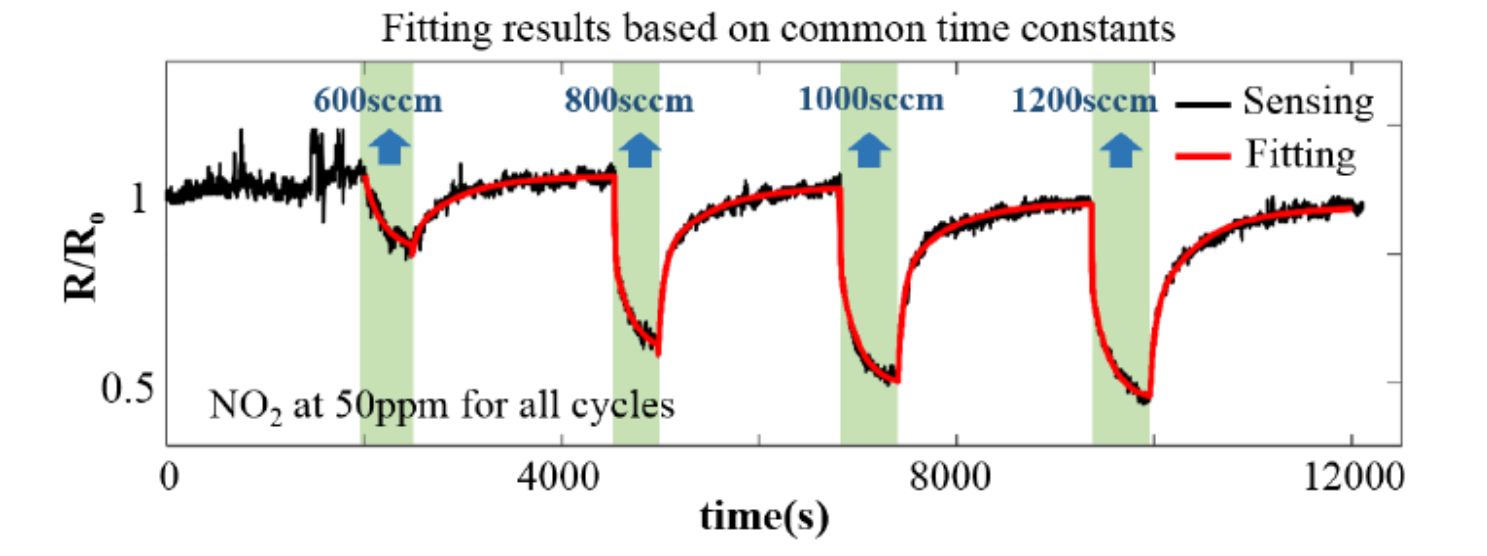Projects
>
Flexible Electronics
|
Using the aerosol jet printing (AJP), we have developed low-cost gas sensors. One of the problems that CNT-based sensors have is the lack of selectivity. It is very difficult to identify one gas from another using physical mechanisms. To solve this problem, we developed a double exponential-convolution model to fit the sensor response. These two time constants of the double exponential function are unique for each sensor and vary with different gases and are independent of the gas concentration, but vary with respect to different gas types and different TFTs. We used this characteristics for gas identity verification of NH3 and NO2.  Our current focus is on addressing different applications of printed electronics. Currently, the use of this technology has been restricted to devices expected to work at low temperature (room temperature). We intend to explore the temperature limits of this technology by testing different materials and strategies to protect transistors and sensors for harsh environments.
Relevant Publications |
|
|
Funding: NSF
|
|


